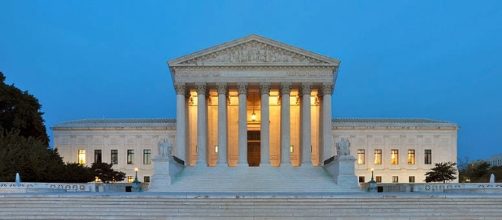The Supreme Court will be making a decision in the case of Gill v. Whitford, which concerns partisan Gerrymandering, CNN reports. What is gerrymandering? Gerrymandering involves arranging voting districts in a way that favors a particular demographic. It involves changing the borders of a voting district to mitigate the influence of particular demographics. This can allow the party in power to draw the borders around a district in a way that will influence the outcome of elections.
Is gerrymandering illegal?
Is gerrymandering illegal? The practice has actually been around since the very beginning of our country.
It has often been used to divide ethnic minority groups in order to prevent their voices from having an impact on an election. The Supreme Court has consistently upheld that it is illegal to draw the boundaries of districts in a way that takes race into account. This includes "affirmative" gerrymandering, where the influence of a particular race on the district's voting is positive.
However, it still remains de facto legal for the party in power to draw the borders of districts along party lines in order to prevent particular parties from coming to power.
The practice gives unfair advantage
This upcoming Supreme Court Decision could radically change this. Is Gerrymandering a problem? The practice gives incumbent parties an unfair advantage, and often can permanently establish the presence of a particular party in a specific region permanently.
Who benefits from gerrymandering? Gerrymandering largely secures the presence of Republicans in red states. This could cause a major upheaval for Republicans during the 2020 election.
It seems likely, moreover, that the Supreme Court will declare partisan gerrymandering unconstitutional given the Supreme Court's history of siding against gerrymandering in past decisions.
Unconstitutional
In fact, the Supreme Court already ruled once in Davis v. Bandemer that partisan gerrymandering is unconstitutional. The 1986 decision failed, however, to put into place measures to place districting under judicial oversight. Partisan gerrymandering, accordingly, is already de jure illegal. Critics of gerrymandering hope, accordingly, that the upcoming decision will lead to a stronger Supreme Court position against gerrymandering.
This comes after a recent decision in Wisconsin, where three judges decided that Republican districting in that state was unconstitutional, violating the First Amendment and equal protection clause. The partisan map, after it was adopted, led to the Republicans gaining a 60 to 39 seat advantage in the state legislature even though they only secured 48.6 percent of the popular vote. Such redistricting decisions, critics claim, lead to a large democratic deficit.
This comes amid President Donald Trump's recent presidential victory, a win that he achieved without a majority of votes by winning the most electoral votes. Critics of gerrymandering, like the criticisms of the electoral college, may continue in the wake of Trump's presidency.


